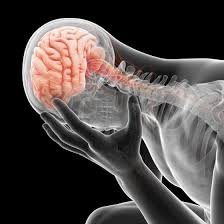There is a trend these days, wherever you go, you get to listen to a constant whining: 'I am depressed', 'I am depressed'. Literally, the word 'depression' is so overused these days pretty much like the word 'racism', 'sexism'. So overused in my opinion that it has lost its real meaning and value, pretty much like when you say ' I am sorry' ' Excuse me' in every social encounter because your culture forces you to. Someone might call this 'the disease of our generation'.
It is estimated that by the year 2020 it will be the no.1 disease worldwide. This finding raises a lot of questions in my mind but especially how do psychiatrists, psychologists and different researchers know that all these people suffer from real 'clinical depression'? Apart from interviews, clinical assessments like the Beck's inventory, quizes, checklists and questionnaires scientists have zero evidence that someone suffers from a chemical imbalance. In other words, all psychiatrists have are behavioral measures of depression and mouth-to-mouth diagnoses. What the patients and doctors are doing is assuming that there is something wrong with our brains which cannot be spotted directly by any means but only indirectly. They cannot prove any causal relationships between the brain and a symptom but just relationships and correlations between brain-states and symptoms. There are no biological tests to support depression. The most powerful weapon scientists have are fMRI scans where they make some inferences between symptoms and brain activations. But again, what causes what? Does depressive-spectrum symptoms display regional differeces in the brain or vice versa? There are zero ways of finding-out in an accurate way that there is something wrong in peoples machineries yet at the same time they prescribe antidepressants which literally affect the brain's chemistry causing many effects and side-effects.
Is Psychiatry mostly 'magic' and 'hocus pocus'? In the Diagnostic and Statistical Manual of Psychiatric Disorder (DSM) you are 'clinically' depressed if you suffer prolonged sadness for about...2 weeks. Who determined that the grieving process takes approximately 2 weeks in all humans, cultures and civilizations? What if someone needs to grieve for three weeks or three months or 12 days? Is he clinically ill or not? Who defines what is natural and unnatural in these cases?
Is a persistent sad mood a disease or is it a natural reaction of the organism to an immense amount of streesors that has to cope with in order to survive? If humans are creatures that constantly battle with stressors to survive then why depression shouldn't be the norm in our reactions than the exception and a dis-order?
I've been 'depressed' numerous times in my life, but always considered 'clinical depression' to be a different beast, one I never faced. Glad to know that according to DSM I've actually been clinically depressed!
I think stress encountered by the "original" humans is a bit different than the one we have today, maybe that's the reason why depression is a disorder and not the normal state.
But as with most things, there is great potential for research and improvement in diagnosis and treatment.
Thanks for the post!